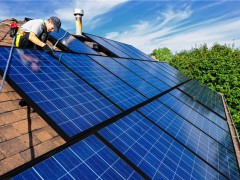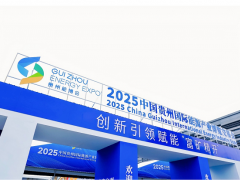據天然氣加工4月21日消息,歐盟排放許可價格的飆升,正鼓勵更多德國公用事業公司在發電時從重碳煤炭轉向天然氣,這可能會加速德國淘汰這種高污染燃料的進程。
歐盟的排放交易系統(ETS)是控制溫室氣體排放的主要工具,它對發電廠和工廠每排放一噸二氧化碳收取費用。
由于去年排放許可的成本上升了28%,德國的硬煤發電量下降了6%,褐煤發電量下降了11%。雖然這在一定程度上反映了與疫情有關的需求下降,但天然氣發電量基本持平。
自去年12月歐盟領導人同意在本十年內制定更雄心勃勃的減排目標以來,該計劃中歐盟碳配額的基準價格進一步上漲了45%。
這促使投機者爭相取得碳排放許可,他們押注立法者將擴大碳補償的需求,將價格推高至每噸45歐元的創紀錄高位。
較高的碳價格增加了硬煤電廠的運營成本,使得它們與燃氣發電廠相比利潤更低。一些發電機已經改用燃氣發電,燃燒時排放的二氧化碳更少。
對于那些無法轉換燃料或虧損運營的企業,許可成本會通過更高的電價轉嫁給消費者。
在德國電力市場,自去年11月以來,所謂的“清潔黑暗”和“清潔火花”的來年價差——分別有效衡量燃煤電廠和燃氣電廠的運營成本——已有所擴大。
燃料和碳之間的成本差距也打擊了德國的褐煤工廠,這些工廠依賴的燃料通常比天然氣和硬煤更便宜。
3月初,1995年以前建造的褐煤電廠(碳效率最低的電廠)的遠期合同首次出現赤字成本。
ICIS分析師馬庫斯·費迪南德表示,碳價格上漲令許多行業參與者措手不及,因為相對于其他燃料來源而言,褐煤價格較低,其低價已經使許多人將褐煤視為中短期的“安全賭注”。
他補充說,在歐盟的幾個國家,煤和褐煤仍是主要燃料來源,要想在這些國家保持競爭力,運營商需要看到煤和褐煤的價格相對于天然氣大幅下降,才能縮小差距。
一些分析人士認為,價格上漲最終將導致煤炭和褐煤能源更快地逐步淘汰,目前德國和波蘭分別定于2038年和2040年停止使用。
如果硬煤電廠以更快的速度關閉,而又沒有其他替代能源來滿足通常由傳統供應保證的電力需求,未來可能會出現供應緊張。
咨詢公司Volue的分析師Espen Andreassen表示:“隨著我們逐漸脫離煤炭,加上建設燃氣電廠的前景未知或存在風險,我們預計許多國家將面臨供應安全問題。”
裘寅 編譯自 天然氣加工
原文如下:
High carbon prices prompt coal-to-gas fuel switching
The soaring price of European Union emissions permits is encouraging more utilities to switch to natural gas from carbon-heavy coal to generate electricity in Germany, potentially speeding up its phase-out of the highly polluting fuel.
The EU's Emissions Trading System (ETS), its main tool for curbing greenhouse gas emissions, charges power plants and factories for each tonne of carbon dioxide they emit.
As the cost of emissions permits rose 28% last year, power generation from hard coal in Germany fell 6% and output from brown coal slid 11%. While that in part reflected a pandemic-related drop in demand, generation from gas remained broadly flat.
The benchmark price of EU carbon allowances in the scheme has risen a further 45% since a December meeting when EU leaders agreed a more ambitious emissions cut target this decade.
That prompted a scramble for permits among speculators betting lawmakers would extend the need for carbon offsetting, pushing prices to record highs of 45 euros a tonne.
The higher carbon price has increased the cost of operating hard coal plants, making them less profitable to run compared to gas equivalents. Some generators have switched to gas, which emits less carbon dioxide when burnt.
For those not able to switch fuels or operate at a loss, permit costs are passed on to the consumer through higher power prices.
In the German power market, the difference between the so-called "clean dark" and "clean spark" year-ahead spreads - which effectively measure the cost of operating coal-fired and gas-fired plants respectively - has widened since last November.
The cost gap between fuels and carbon has also hit brown coal, or lignite, plants in Germany, which are dependent on a usually cheaper fuel source than both gas and hard coal.
In early March, forward contracts for power produced by lignite plants built pre-1995 - the least carbon efficient - went into a deficit cost for the first time.
The rising carbon price has caught a lot of industrial players off guard, as its low price relative to other fuel sources had made many see lignite as a "safe bet" in the short to mid-term, said ICIS analyst Marcus Ferdinand.
For coal and lignite to stay competitive in the several EU countries where it remains a main fuel source, operators would need to see the price of the fuel drastically drop in comparison to gas in order to tighten the spread, he added.
Some analysts see rising prices eventually leading to a faster phase-out of coal and lignite power sources, which are currently due to come offline in 2038 in Germany and in 2040 in Poland.
If hard coal plants shut down at a faster pace and there are no alternatives in place to meet power demand normally assured by conventional supply, there could be a supply squeeze further down the line.
"As we are moving away from coal, and with unknown or risky outlooks (for) building gas-fired plants, we expect many countries to run into security of supply problems," said Espen Andreassen, an analyst at consultancy Volue.
免責聲明:本網轉載自其它媒體的文章,目的在于弘揚石化精神,傳遞更多石化信息,并不代表本網贊同其觀點和對其真實性負責,在此我們謹向原作者和原媒體致以敬意。如果您認為本站文章侵犯了您的版權,請與我們聯系,我們將第一時間刪除。







